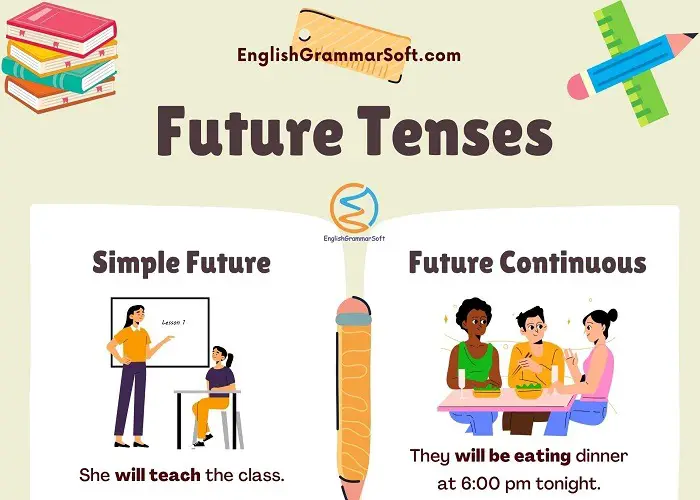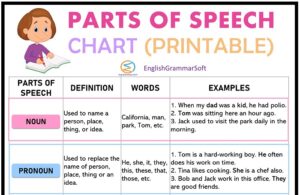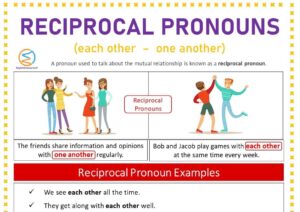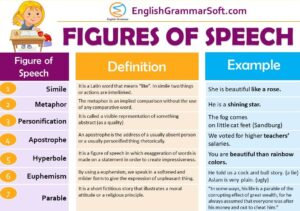Future Tenses in English (Structure & 10 Examples Each)
Future tenses indicate an action that will happen in the future. These are used to talk about the future; to describe what will happen (or will be happening) in future; and to make predictions about what might happen.
The future tenses of verb are used to describe events that have not yet happened. The future tense can be used to express:
- Actions that will take place in the future
- Probability or likelihood of an event occurring
- Intentions or plans for the future
There are a few different ways to form the future tense in English. The most common is to use the auxiliary verb “will” followed by the base form of the main verb. For example:
- I will go to the store later.
- She will read the book tonight.
- They will finish their homework before dinner.
Another way to form the future tense is by using “going to” followed by the base form of the main verb. This is used to express plans or intentions for the future. For example:
- I am going to go to the store later.
- She is going to read the book tonight.
- They are going to finish their homework before dinner.
Finally, the future tense can also be expressed using the present tense form (base form) of the main verb. This is typically used for scheduled events that will occur in the future. For example:
- The train leaves at 6:00 pm.
- His flight arrives at 9:30 am tomorrow.
- The meeting starts in five minutes.
The future tense is a verb tense used to indicate that an action or event is expected to take place in the future. The future tense can be used to express actions, events, or states of being that will occur at some point in the future.
Types of Future Tenses
There are four types of future tenses in English:
- The simple future tense is used to describe an action or event that will happen in the future. For example, “I will go to the store.”
- The future continuous tense is used to describe an action or event that will be happening at some point in the future. For example, “I will be going to the store.”
- The future perfect tense is used to describe an action or event that will have happened at some point in the future. For example, “I will have gone to the store.”
- The future perfect continuous tense is used to express an action that will continue up to a specific point in the future. For example, “The students will have been studying for two hours by the time we arrive.”
What is Simple Future Tense?
The simple future tense is used to describe an event that will take place in the future. It is typically expressed using the modal verb “will”. For example, the sentence “I will go to the store.” expresses the fact that going to the store is something that will happen in the future.
Other ways of expressing the simple future tense include using the verb “shall” or using the base form of the verb with no auxiliary verb. In some cases, a present tense form may be used to express futurity, such as with the phrase “I am leaving tomorrow.”
The simple future tense can also be used to express probability or likelihood, as in the sentence “This will be my last chance to see her.”
When Simple Future Tense is Used?
- The Simple Future tense is used to express an action that will happen in the near future, e.g., She will write a book.
- We use will + infinitive for actions that are certain and definite, e.g., I will go to the party this weekend; She will buy a new car next month; We’ll see each other soon!
- We use going to + infinitive for actions that are likely but not certain, e.g., It’s going to rain tomorrow; He is going to fail his exam tomorrow because he didn’t study enough; They’re going to win their next match because they’re so good at tennis!
Structure of Simple Future Tense
The structure of simple future tense is:
Subject + will + base form of verb
He/She/It/I/We/They/You + will + base form
| Simple Future Tense | Structure | Example |
|---|---|---|
| Affirmative | Subject + will + base form | He will eat cake. |
| Negative | Subject + will not + base form | He will not eat cake. |
| Interrogative | Will + subject + base form + ? | Will he eat cake? |
10 Examples of Simple Future Tense
- He will drive the car.
- She will teach the class.
- It will rain tomorrow.
- He will be able to do it.
- We will go to the park tomorrow.
- He will play tennis with his friends.
- They will visit their grandparents next week.
- I will read a book tonight.
- She will help me with my homework.
- They will go to the movies tomorrow.
What is Future Continuous (Progressive) Tense?
The Future Progressive Tense is used to express actions that will be in progress at a specific time in the future. The time can be expressed explicitly, or it can be implied. For example:
- I will be studying for my test at 6pm tonight. (The time is expressed explicitly.)
- Next week, I‘ll be getting my hair cut. (The time is implied.)
However, there are some subtle differences in meaning between the two forms. In general, will is used for actions that are sure to happen, while be going to is used for actions that are more likely or planned. For example:
- The sun will rise at 6am tomorrow. (This is a sure thing.)
- I am going to study for my test tonight. (This is something I have planned.)
There are also some differences in how we use these forms in spoken English. Will is more common in written English, while be going to is more common in spoken English. You can read here more detail regarding usage of will and going to.
When Future Continuous Tense is Used?
- The future continuous tense is used for actions that will occur in the near future – often within one or two days (For example: I will be leaving tomorrow.)
- It is used with stative verbs to describe a change in state that will continue in the future (For example: The sun will be rising soon.)
- Future Continuous Tense can also be used to talk about actions that are likely to happen in the near future but haven’t been scheduled yet (or set in stone). In this case, we use “will be going” instead of “will be.” For example: They will be going on vacation next month.
Structure of Future Continuous Tense
The structure of simple future tense is:
Subject + will be + present participle
He/She/It/I/You/We/They + will be + present participle
| Future Continuous Tense | Structure | Example |
|---|---|---|
| Affirmative | Subject + will be + present participle | He will be eating cake. |
| Negative | Subject + will not be + present participle | He will not be eating cake. |
| Interrogative | Will + subject + be + present participle+? | Will he be eating cake? |
10 Examples of Future Continuous Tense
- She will be eating dinner at 6:00 p.m.
- They will be arriving at the airport at 3:00 p.m.
- He will be playing tennis with his friends later this afternoon.
- Next week we will be going on a field trip to the zoo.
- I will be taking my final exams next month.
- They will be playing soccer on Saturday morning.
- In a month, we will be moving to a new house.
- She will be walking the dog at six o’clock tomorrow morning.
- You will be finishing your report by 5:00 PM today.
- Later tonight, I will be doing some laundry and cleaning the kitchen.
What is Future Perfect Tense?
The Future Perfect Tense is used to express an action that will be completed before a certain time in the future. This tense is formed by using the auxiliary verb “will” along with the present participle of the main verb. For example, “I will have finished my essay by noon tomorrow.”
- By the time she arrives at 3 pm, I will have cleaned the entire house.
- They will have arrived in New York by noon tomorrow.
- You will have completed your homework before you go to bed.
As you can see, the future perfect tense is used to describe an event that will happen before another event in the future. In order to form this tense, you need to use the correct verb conjugation of “will” followed by the correct verb conjugation of “have” and the past participle of the main verb.
When Future Perfect Tense is Used?
Here are some examples of how to use the future perfect tense:
- “I will have finished by 10 pm.” This sentence shows that you have already planned to finish something by 10 pm, or it shows that you intend to finish something by 10 pm.
- “She will be ready when we get there.” This sentence shows that she has already planned or decided on a time when she will be ready for something, such as meeting with someone else at a certain time and place.
- “We won’t have eaten lunch by 3 o’clock.” This sentence shows that we haven’t yet planned on eating lunch at 3 o’clock (or any other time), but we know we will eat lunch sometime before that time arrives.
Structure of Future Perfect Tense
Structure of future perfect tense is:
Subject + will have + past participle
| Future Perfect Tense | Structure | Example |
|---|---|---|
| Affirmative | Subject + will have + past participle | He will have eaten cake. |
| Negative | Subject + will not have + past participle | He will not have eaten cake. |
| Interrogative | Will + subject + have + past participle+? | Will he have eaten cake? |
10 Examples of Future Perfect Tense
- By six PM tonight, the delivery will have arrived.
- I will have graduated by this time next year.
- They will have finished the project by Monday morning.
- We will have reached our destination before dark.
- She will have read the entire book by tomorrow afternoon.
- By the end of this month, we will have paid our rent.
- You will have received your promotion by next week.
- They will have built the new bridge by 2024.
- We will have published our book by then.
- She will have cleaned the house before her guests arrive.
What is Future Perfect Progressive Tense?
The future perfect progressive tense is used to describe an ongoing action that will be completed at some point in the future. This tense is formed by using the present tense of the verb “to be” followed by the present participle of the main verb. For example:
I will have been studying French for two years by the time I go to Paris.
In this sentence, the action of studying French is ongoing and will be completed in the future.
When Future Perfect Continuous Tense is Used?
The Future Perfect Continuous Tense is used to express an action that will be unfinished at a certain time in the future. It can also be used to talk about an action that will have been going on for some time when another event happens.
Examples:
- I will have been working here for ten years when I retire. (When I retire, it will have been ten years since I started working here.)
- She will not have been waiting for more than 5 minutes when her sister arrives. (Her sister hasn’t arrived yet, but she has been waiting for more than 5 minutes.)
- He will not have been waiting long when he got his flight number called by the gate agent. (He was probably waiting only a short time before getting his flight number called.)
Structure of Future Perfect Continuous Tense
Structure of present perfect tense is:
Subject + will have been + present participle
He/She/It/I/You/We/They + will have been + present participle
| Future Perfect Continuous Tense | Structure | Example |
|---|---|---|
| Affirmative | Subject + will have + present participle | He will have been eating cake for ten minutes. |
| Negative | Subject + will not have + present participle | He will not have been eating cake for ten minutes. |
| Interrogative | Will + subject + have been + present participle + ? | Will he have been eating cake for ten minutes? |
10 Examples of Future Perfect Continuous Tense
- Next month, Sarah will have been working at her new job for six months.
- Within the next few weeks, the construction workers will have been working on the new bridge.
- I will have been flying to Australia for the first time in two days.
- I will have been playing the piano for six months by the time my recital comes around.
- He will have been writing his book for two years by the time it is finally published.
- She will have been taking dance classes for eight years by the time she graduates from college.
- She will have been jogging for an hour by the time she gets home.
- I will have been cooking dinner for half an hour by the time you get home.
- By the time we finish this race, we will have been running for over an hour.
- I will have been writing articles for the website for three years by the time I graduate.
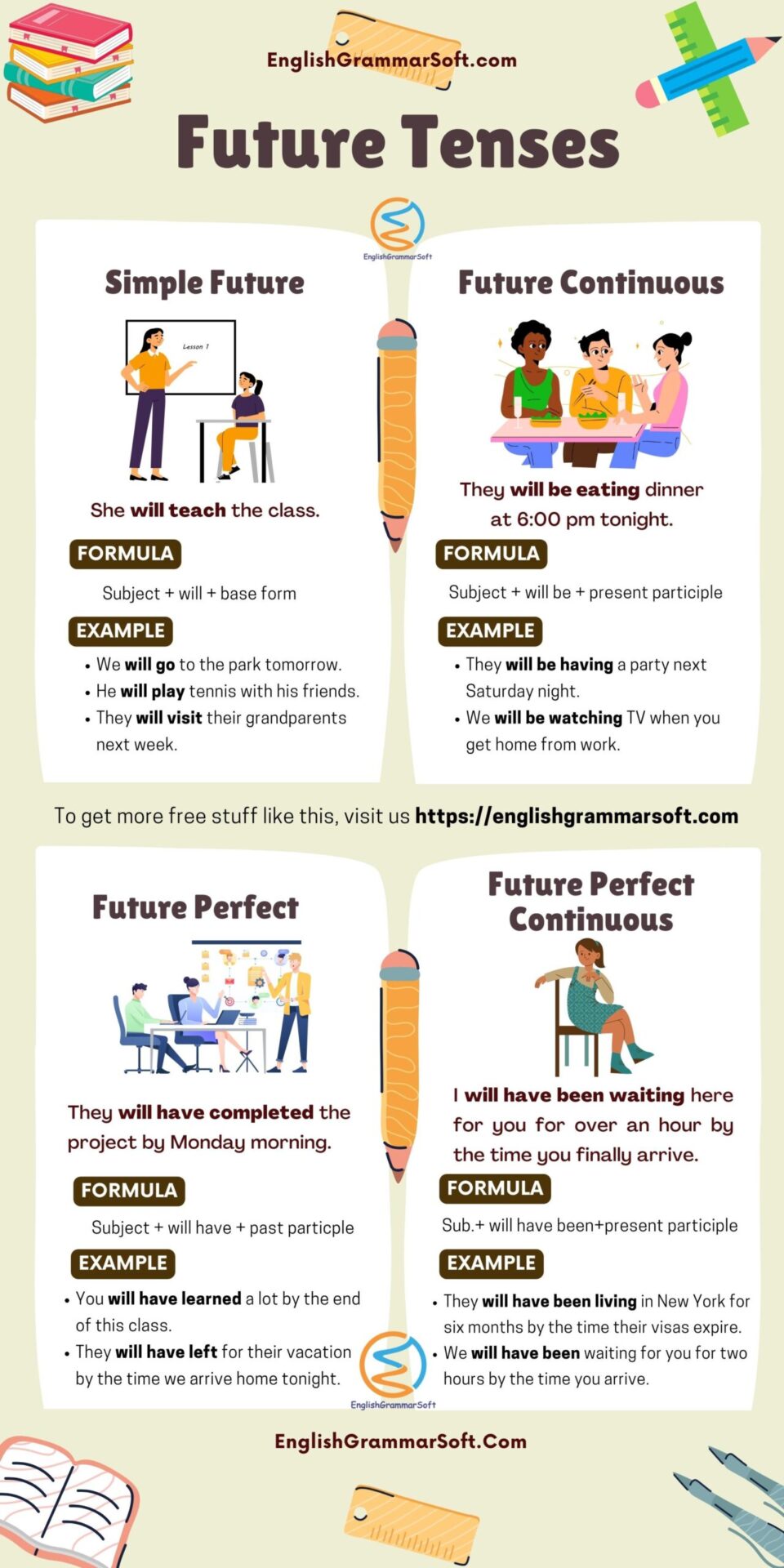
Further Reading
